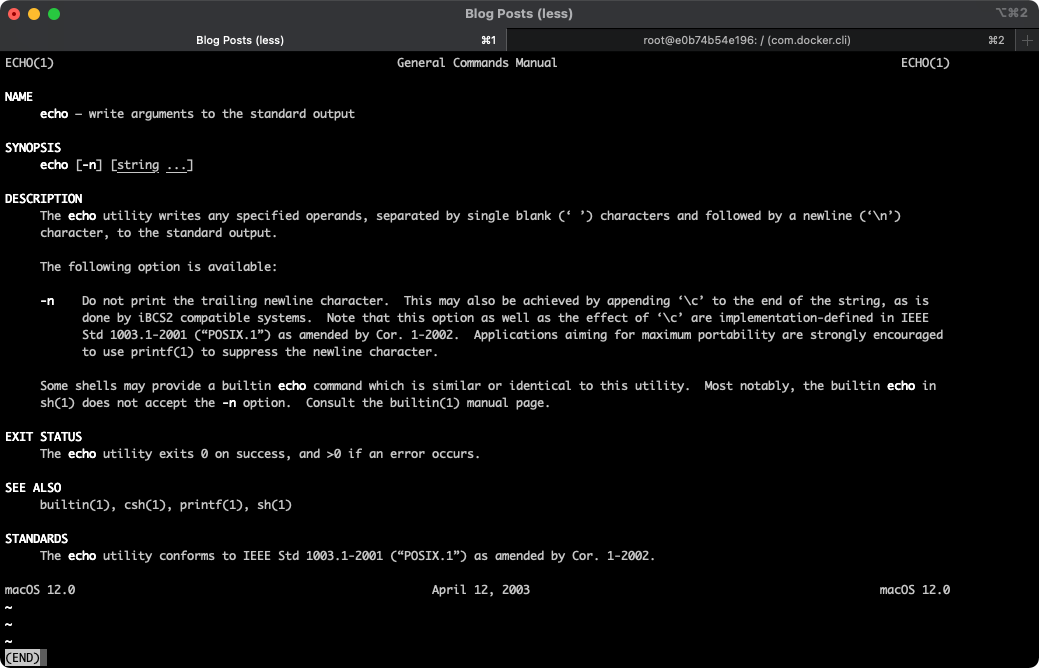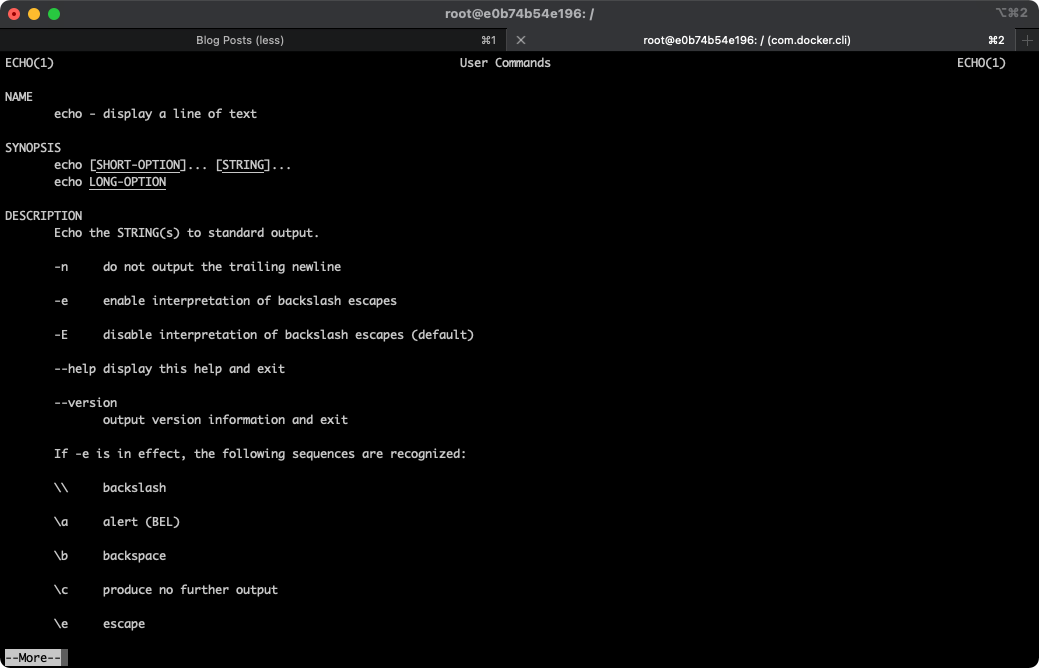While echo is the more widely known command for printing text to standard out, I have found behavior and documentation inconsistencies in its varying implementations1.
macOS echo man page:

Ubuntu echo man page:

In addition, it’s default behavior can cause unintended results when combined with character sensitive commands like base64. Here are a few use cases where echo has caused some trouble for me.
Base64 encoding credentials to put into secret management (Hashicorp Vault, kubernetes, etc.)
#!/usr/bin/env bash PASSWORD="supersecretpassword" # echo output echo "${PASSWORD}" | base64 c3VwZXJzZWNyZXRwYXNzd29yZAo= # printf output printf "${PASSWORD}" | base64 c3VwZXJzZWNyZXRwYXNzd29yZA==Echo appends a newline to the end of your output which will be passed in the output piped to the base64 command and also appear in the base64 encoded output.
Doing script output
Desired output
one line two line three line four#!/usr/bin/env bash INPUT="one line\ntwo line\nthree line\nfour" # echo output echo "${INPUT}" one line\ntwo line\nthree line\nfour # printf output printf "${INPUT}" one line two line three line fourThe desired output can be achieved using
echowith the-eargument, but as shown in the screenshots above, it’s not always documented.